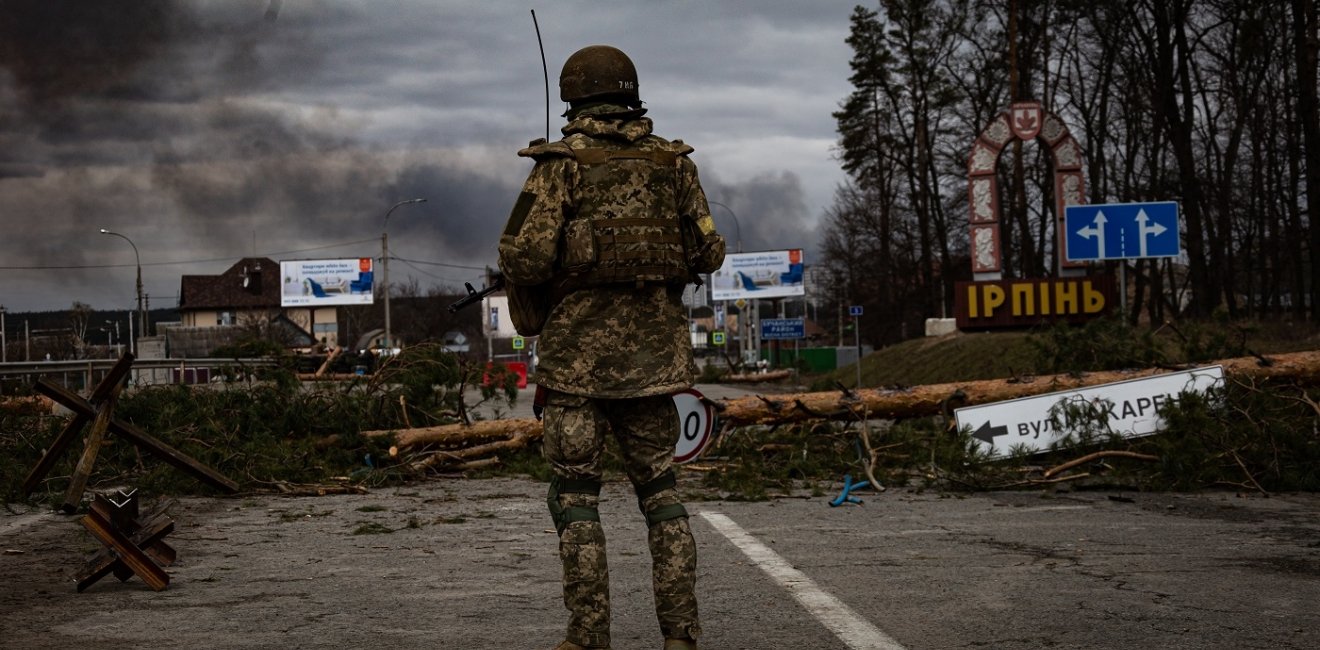
A blog of the Kennan Institute
BY VICTOR ANDRUSIV
In a recent article, the New York Times essentially called on the US government to be realistic and recognize that Ukraine cannot defeat Russia. The appeal to be realistic drew my attention because, to a large extent, this entire war is being fought for the kind of reality we will live in and what we believe to be true.
I am writing this piece in Kyiv, where I have been since the beginning of the war, and where I still have to run to the basement several times a day because of air-raid sirens. There is a special sense of the reality of war here, and I want to tell three truths about it.
The first truth is that this is not a war between Russia and Ukraine. The misconception that the war will end as soon as Ukrainians and Russians find common ground makes many politicians and analysts draw the wrong conclusions.
In fact, as we in Ukraine have said all along, it is Russia's war against the West and its values.
I'll remind you how it all started. In mid-December, Putin demanded a new security agreement with the US and NATO. The agreement not only would have banned Ukraine and other post-Soviet countries from joining the bloc but also limited the deployment of NATO forces in Europe. NATO’s refusal to sign this treaty was the justification Putin used to start his war of aggression against Ukraine.
Putin has repeatedly said that the West had left him no choice. This tells us that this war, and its end, is not about Russia-Ukraine relations. Victory in Ukraine is not Putin's final goal, and if he achieves it, he will simply move on to the next target. But to defeat him in Ukraine is to prevent him from doing that.
The second truth is that no one expected such resistance from the Ukrainians and such failure on the part of the Russian military machine. It is a fact that Western intelligence and politicians gave Kyiv two weeks and Mariupol four days before they fell.
Ukrainian forces defeated the Russians near Kyiv at a time when Ukraine had no special weapons other than Javelin and Next-generation Light Anti-tank Missiles and Stinger man-portable air-defense systems.
While these are good weapons, they are not the sole reason the Russian army retreated from northern Ukraine. Kyiv was preparing to defend itself on every square meter. Thousands of people took up arms, made Molotov cocktails, dug trenches. It is our army’s great achievement that it was able to stop the Russian offensive and then create the conditions to encircle the Russian forces, leaving them no choice but to retreat. And for almost two months now, Russian forces, which had outnumbered Ukrainian forces 20 to one, has shown little success in the Donbas.
If we are to be realistic, as the New York Times editorial seemingly urges us to be, we have to admit that all assessments of what would happen to Ukraine thus far have been wrong. This makes the editorial board’s argument that the war needs to end because Ukraine will not be able to defeat Russia and recapture its territory irrelevant.
Here is what is relevant: there is no solution to the war other than Ukrainian victory. This conflict has been going on for eight years. Throughout all this time and all potential ceasefires and agreements on the secession of territories, Ukraine followed the Minsk I and Minsk II agreements. These failed to end the conflict, which suggests that anything short of Ukrainian victory will just keep extending this war.
Finally, the third truth about the reality of this war—an especially painful truth—concerns Bucha. After the atrocities and genocide in Bucha, the rest of the world cannot afford to be making deals with the Kremlin. A country whose army rapes young children and kills their mothers is a threat to the whole world.
In Bucha, Putin did not just attack Ukraine but the whole global security and peace system created after World War II, including the notion that the atrocities of that war, including genocide, must never repeat. In the wake of Bucha, the only acceptable answer to Putin’s aggression in Ukraine is Russia’s military defeat.
The opinions expressed in this article are those solely of the authors and do not reflect the views of the Kennan Institute.
Author


Kennan Institute
After more than 50 years as a vital part of the Wilson Center legacy, the Kennan Institute has become an independent think tank. You can find the current website for the Kennan Institute at kennaninstitute.org. Please look for future announcements about partnership activities between the Wilson Center and the Kennan Institute at Wilson Center Press Room. The Kennan Institute is the premier US center for advanced research on Eurasia and the oldest and largest regional program at the Woodrow Wilson International Center for Scholars. The Kennan Institute is committed to improving American understanding of Russia, Ukraine, Central Asia, the South Caucasus, and the surrounding region through research and exchange. Read more

Explore More in Focus Ukraine
Browse Focus Ukraine
Talking to the Dead to Heal the Living

Ukrainian Issue in Polish Elections


